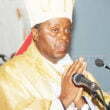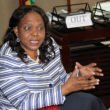We have observed that there are mixed sentiments from the clergy over the “Church Empowerment Fund”. While some churches have declined to take up this generous gesture from government for various reasons, some churches who intend to take full advantage of this initiative have rose to castigate those that have respectfully refused to be used for political reasons in an election year.
The Seventh Day Adventist Church recently advised its members against applying for the fund because it feels that; “whereas the requirements that churches are to meet to access the funding are quite elaborate, and some of them alien to the Seventh-day Adventist financial system, the management of the scheme is too complicated and vulnerable to mismanagement which can bring disrepute to the name of the church.”
Meanwhile, in his letter to the Chipata diocese, Bishop George Banda said the timing of the Fund did not sit well with the Catholic Church, considering that this is an election year, and the various economic challenges that the citizens were experiencing.
Bishop Banda: “The timing of all these initiatives leaves room for speculation. It may well be pure coincidence that all this is happening within the Election Year. However, it certainly has a tinge of political strategy in the service of the donors. We may give it a benefit of doubt, but the truth will eventually set us free. As such, and in view of maintaining the no-partisan and prophetic stance of the Church, we have deemed it right and fitting that we decline the offer, in the run-up towards the August 12, 2021 General Elections.”
In our view there is nothing wrong with the church accepting government help or vice versa. However, as Bishop Banda rightly put it, the timing of these initiatives leaves room for speculation.
We are at loss to understand why the government has chosen this moment to help out the Church. Firstly because the peak of the COVID pandemic is well behind us. Churches have been allowed to congregate, bars have been opened and even night clubs now operate in their usual manner. It is well understood that the pandemic is not over and challenges remain but things have stabilised, there are no lockdowns and almost no restrictions at this point. If there was a time to help the Church, that was during the peak of the pandemic with lockdowns and restrictions that prohibited church gatherings.
Secondly, we do not understand where this “Church Empowerment Fund” is coming from? Is it in the national budget? If so, where exactly is it stipulated?
From our point of view it is clear that there was no such provision in the national budget, therefore the source of this money is questionable. It is also a well known fact that the country is broke, we have defaulted on debt and there is no clear solution at this point to repay it. So why is it wise for government to come with this initiative now? Why would a country so indebted to a point of defaulting on small loans start dishing out money?
Thirdly, who will account for this money and who will follow through to see how it was utilised? Churches are not audited and we have not heard any such accountability measures attached as conditions for getting this church empowerment fund. In fact, in the Zambian set up some churches are owned by individuals. When we consider this we wonder what motive there is behind this initiative?
We are asking these questions because we believe that this “Church Empowerment Fund” has been set up to influence the Church in an election year instead of helping it deal with the many challenges that it is faced with. It is true that the Church needs help, but this is not help. This is an attempt to confuse the Church. Someone is trying to woe the church leadership to align its membership towards a particular party’s political agenda.
Instead of giving money to the Church, why not employ more nurses and deploy them to Church run health centres? With the current unemployment levels, government should consider empowering the Church by empowering its members. Let’s remember that the Church is sustained by its members both in the short term and in the long term. So if government really wants to empower the church, let them call upon all those graduates languishing in the streets, provide them with a salary and the church will get its tithe, not just during the pandemic, but for as long as those citizens stay in employment.
In our opinion, those that are eager to get this money like the Independent Churches of Zambia board chairperson Bishop David Masupa should go ahead but they should not throw stones at those with conscious minds for not taking up the offer. After all, neither the Catholics nor the Adventists asked government to withdraw its offer. They merely declined because they have eyes and ears and brains. They have noticed that this government has failed to construct its so called National House of Prayer Tabernacle on Burma Road in Lusaka. Up to now it’s a white Elephant. Government has no money. But suddenly there is money to donate to other churches? How?
These are the questions that the Catholics and the Adventists are asking. It’s important to question the motives. Like Archbishop Telesphore Mpundu correctly put it, a donation of that kind has, not strings, but cables attached to it. We agree with him that when Church leaders see politicians staggering towards the pulpit with a bloated envelop the size of a pillow, they should know that this has nothing to do with God or Love. It’s corruption!













One Response
Dishing out money is not empowering, it is merely feeding for the moment. All those “empowered” artists, youth, marketeers have not been empowered, they have been cashed. They will need more cash sooner, rather than later. Empowering requires giving people the facilitation for them to make their own money, not dishing out tax payer’s money.